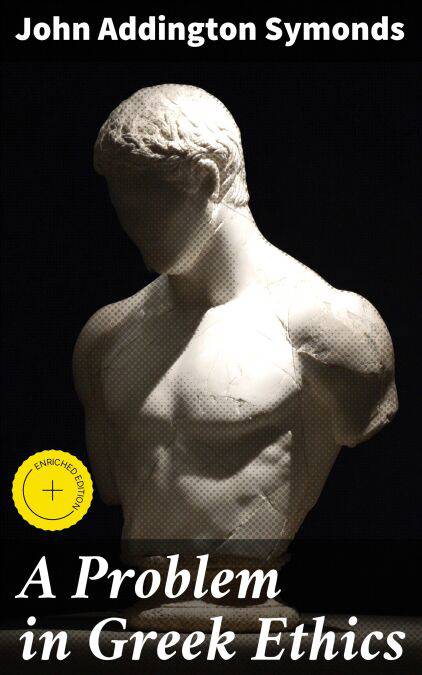
- Retrait en 2 heures
- Assortiment impressionnant
- Paiement sécurisé
- Toujours un magasin près de chez vous
- Retrait gratuit dans votre magasin Club
- 7.000.0000 titres dans notre catalogue
- Payer en toute sécurité
- Toujours un magasin près de chez vous
A Problem in Greek Ethics EBOOK
Enriched edition. Being an inquiry into the phenomenon of sexual inversion, addressed especially to medical psychologists and jurists
John Addington Symonds
Ebook | Anglais
1,99 €
+ 1 points
Description
In "A Problem in Greek Ethics," John Addington Symonds explores the complexities of pederastic relationships in ancient Greece, scrutinizing the moral and social frameworks that governed them. Employing a rich, eloquent literary style characterized by historical rigor and philosophical inquiry, Symonds delves into the ethical nuances that challenge contemporary understandings of love and mentorship. The book situates itself within the broader context of 19th-century Victorian debates on sexuality, seeking to reassess the values imposed by modern morality upon ancient practices. Symonds, a noted figure of the late Victorian period and an ardent advocate for homosexuality, was profoundly influenced by his own experiences and intellectual milieu. His works not only championed the appreciation of classical literature and art but also sought to dismantle the rigid moral codes of his time, making "A Problem in Greek Ethics" a crucial text in the evolution of queer theory. His personal conflicts around sexuality and a cultural backdrop rife with repression motivated his inquiry into a world where alternative sexualities were more readily accepted. This book is highly recommended for scholars of classical studies, philosophy, and LGBTQ+ history, as well as for any reader interested in the intersections of ethics and sexuality. Symonds' insightful treatment encourages a respectful engagement with the past, inviting a reexamination of our own ethical frameworks. A captivating read that illuminates the richness and complexity of human desire across time.
In this enriched edition, we have carefully created added value for your reading experience:
- A succinct Introduction situates the work's timeless appeal and themes.
- The Synopsis outlines the central plot, highlighting key developments without spoiling critical twists.
- A detailed Historical Context immerses you in the era's events and influences that shaped the writing.
- A thorough Analysis dissects symbols, motifs, and character arcs to unearth underlying meanings.
- Reflection questions prompt you to engage personally with the work's messages, connecting them to modern life.
- Hand‐picked Memorable Quotes shine a spotlight on moments of literary brilliance.
- Interactive footnotes clarify unusual references, historical allusions, and archaic phrases for an effortless, more informed read.
In this enriched edition, we have carefully created added value for your reading experience:
- A succinct Introduction situates the work's timeless appeal and themes.
- The Synopsis outlines the central plot, highlighting key developments without spoiling critical twists.
- A detailed Historical Context immerses you in the era's events and influences that shaped the writing.
- A thorough Analysis dissects symbols, motifs, and character arcs to unearth underlying meanings.
- Reflection questions prompt you to engage personally with the work's messages, connecting them to modern life.
- Hand‐picked Memorable Quotes shine a spotlight on moments of literary brilliance.
- Interactive footnotes clarify unusual references, historical allusions, and archaic phrases for an effortless, more informed read.
Spécifications
Parties prenantes
- Auteur(s) :
- Editeur:
Contenu
- Nombre de pages :
- 175
- Langue:
- Anglais
Caractéristiques
- EAN:
- 4057664638304
- Date de parution :
- 24-04-21
- Format:
- Ebook
- Protection digitale:
- Digital watermarking
- Format numérique:
- ePub

Seulement chez Librairie Club
+ 1 points sur votre carte client de Librairie Club
Les avis
Nous publions uniquement les avis qui respectent les conditions requises. Consultez nos conditions pour les avis.





